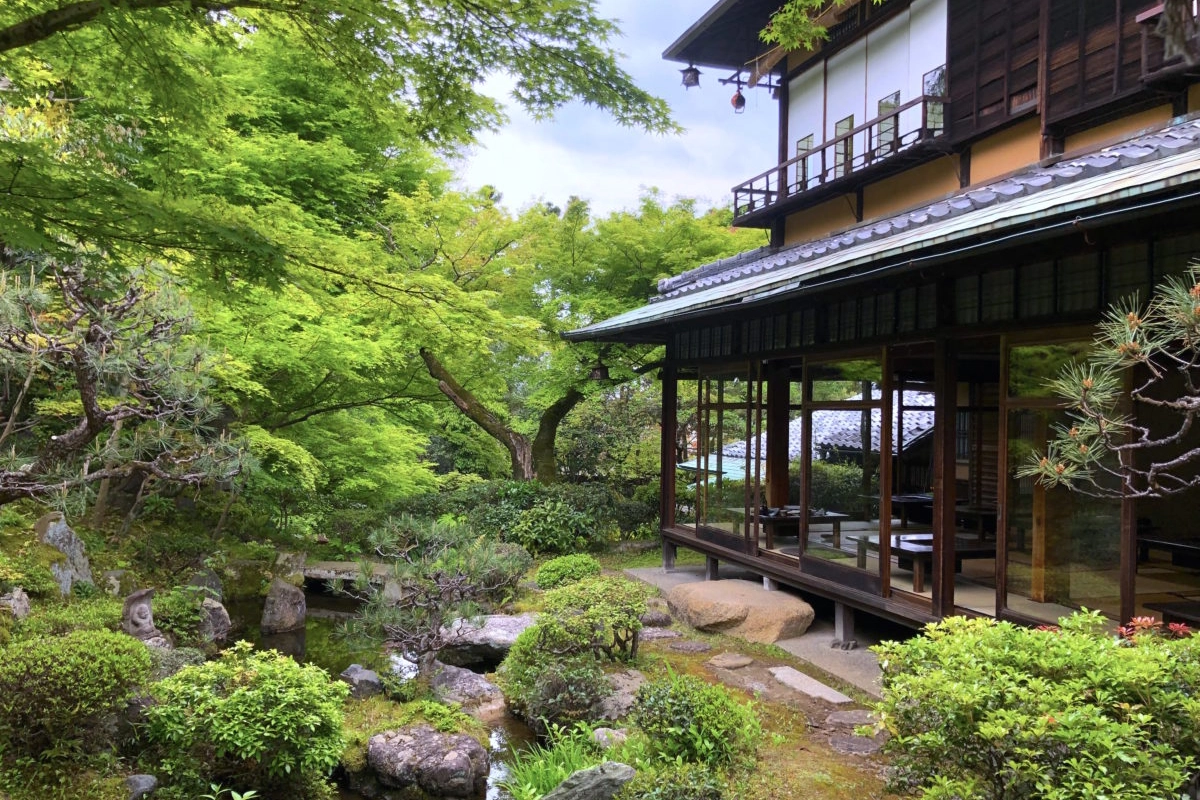Okutan’s Serenity: A Culinary Journey at Yudofu, Kyoto
In the heart of Kyoto, where ancient traditions blend seamlessly with modern charm, there lies a culinary haven that has delighted the senses of travelers and locals for centuries. Yudofu Okutan, nestled near the historic Nanzenji temple, is a hidden gem that beckons you to explore the rich tapestry of Japanese vegetarian cuisine. Dating back to the Edo period and founded in 1635, this venerable establishment is one of Japan’s oldest vegetarian restaurants, showcasing the timeless allure of Yudofu – a simple yet elegant dish of soft tofu simmered in a delicate kombu (kelp) broth.
Steeped in history, Yudofu Okutan has a legacy that transcends the culinary realm. It was established as a tranquil oasis for weary pilgrims en route to Nanzenji temple, offering respite, sustenance, and a testament to the virtues of vegetarianism. The restaurant’s founder, Yamaoka Okutan, was not just a proprietor but a Buddhist monk who ardently believed in the sanctity of vegetarianism. His vision was to create a space where people could savor delectable vegetarian fare in a serene, temple-like atmosphere. And so, Yudofu Okutan was born, where history and gastronomy beautifully collide.
One cannot underestimate the significance of Yudofu Okutan in Kyoto’s culinary landscape. It’s not just a restaurant; it’s a living piece of history that unfolds on your plate. The culinary traditions rooted in the Edo period remain untouched here, a testament to the enduring legacy of Okutan’s commitment to authenticity. A visit to this legendary establishment is like stepping back in time while savoring a piece of living history.
At the heart of this establishment’s fame is Yudofu, the dish that has captivated countless palates over the centuries. It’s a medley of simplicity and elegance, showcasing the innate flavors of the ingredients. Soft tofu, known for its subtle, creamy texture, is the star of the show, harmoniously simmered in a delicate kombu broth. As you indulge in each spoonful, you’ll realize how the mastery of simplicity can create culinary wonders.
Yudofu Okutan’s menu goes beyond the signature dish. It unfolds like a seasonally changing canvas of tastes, a testament to the commitment to fresh, locally sourced ingredients. Every dish tells a story of the season it represents, ensuring that your visit is a unique gastronomic journey. Whether it’s the crisp, seasonal vegetables or the light and crispy tempura that tickle your taste buds, the flavors here are a celebration of the changing seasons.
Miso soup, a staple in Japanese cuisine, is a work of art at Yudofu Okutan. It’s not just about a bowl of soup; it’s about an age-old recipe that has been perfected through centuries. Each spoonful offers a glimpse into the deep connection between Japanese culture, tradition, and nature.
But Yudofu Okutan is not just about food; it’s about the entire experience. The moment you step inside, you are transported to a serene, traditional Japanese setting that feels like a world apart from the bustling streets of Kyoto. Tatami mat floors welcome your footsteps, and the soft glow of paper lanterns illuminates your path. It’s a space where time seems to slow down, and you can immerse yourself fully in the moment.
This culinary journey isn’t just about satisfying your appetite; it’s about nourishing your soul with the essence of Kyoto. The restaurant’s proximity to Nanzenji temple ensures that you are enveloped in a sense of tranquility and spirituality. As you savor each bite, you’re reminded of the deep connection between food, culture, and spirituality in Japan.
Yudofu Okutan isn’t just a restaurant; it’s a cultural institution. It’s where history, tradition, and gastronomy converge to create an unforgettable experience. It’s a place where you can indulge in the past while savoring the flavors of the present. So, when in Kyoto, make sure you embark on this culinary journey to Yudofu Okutan. It’s a voyage through time and taste that will leave an indelible mark on your heart and palate, reminding you of the timeless allure of Japanese vegetarian cuisine.
